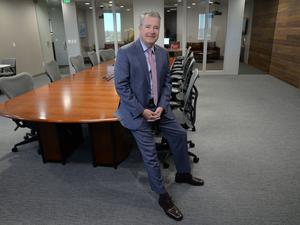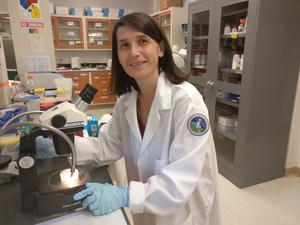The Sacramento area is seeing more people willing to invest in startup companies, which, in turn, appears to be breeding more local startups.
And with increasing investor interest, more local startup companies can stay in the region, rather than follow where their money hunt might lead them.
The details of growing local investor interest aren’t just anecdotal but measurable. For example, the Growth Factory Ventures fund, a new venture capital fund of more than $10 million based in Rocklin, has gotten close to its goal of 99 investors, most of them local. The Sacramento Angels investing group has seen its ranks rise to 80 members, more than double a decade ago. And Moneta Ventures, the Folsom-based venture capital firm, has grown to $300 million in assets under management.
Local startup investors are important because they can allow a company to stay local and tap into networks for support, mentoring and potentially more money, said Dave Sanders, a longtime member of the Sacramento Angels and a managing partner of executive search firm WorldBridge Partners LLC in Roseville.
If a local company can get seed or growth funding locally, it's more likely to stay here rather than relocate to wherever its funders are, Sanders said.
He also noted that the increase in activity and membership in the Sacramento Angels is not being driven by recent transplants from the Bay Area.
“I think less than 10% of the people who are being active in investing recently migrated here from the Bay Area," he said. “I actually think that there are more locals that are interested in participating."
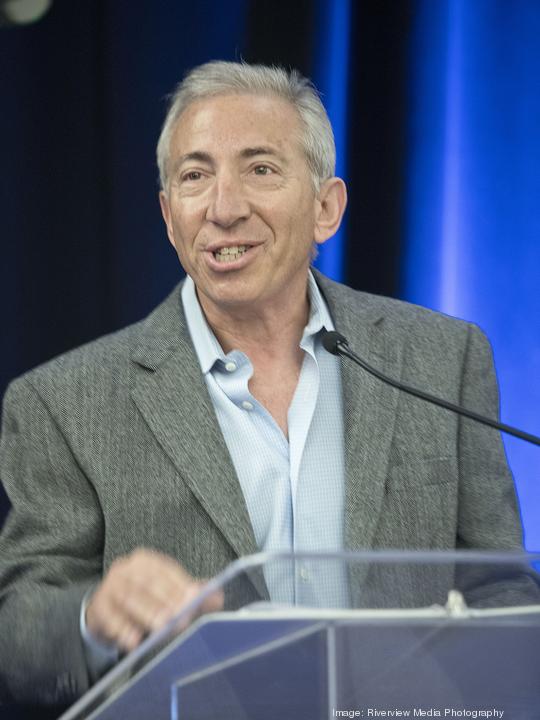
The Sacramento Angels has ended each of the past two years with 80 members, its highest participation ever, and that’s with about a 10% annual churn, said John Peters, chairman and president of the group. The Angels are also doing more deals. The Angels did 20 deals in 2022 and 19 in 2021. That’s up from just 10 or 12 deals per year four and five years ago, Peters said.
Angel investors are accredited investors who are willing to invest in illiquid companies like startups, where the risks include the total loss of investment. To be an accredited investor, a person must have ongoing annual income of more than $200,000 for more than two years, or a net worth of $1 million or more, not including the value of a residence.
Strength in numbers
Founded in 2000, the Sacramento Angels had in the past looked at companies as a group, but members made investments individually. In 2018, the Sacramento Angels changed into a multiclass limited liability corporation, a structure that simplifies record-keeping, investing and taxes. That structure also allows groups of investors to invest as one, which lowers risk by diversification. Rather than putting $160,000 into one company, the members can put $20,000 into eight companies.
“Our model is very powerful. It brings people together to collaborate,” Peters said. “We’re only in some deals because of the LLC. It means that founders don’t have to individually chase a bunch of small checks."
The growth of the Angels’ membership and its increased activity also has helped the group attract more potential candidates for funding, he said.
“That’s the game. You want to look at more companies,” Peters said. For the Angels’ February meeting, the group vetted more than 40 companies to get two presenting companies.
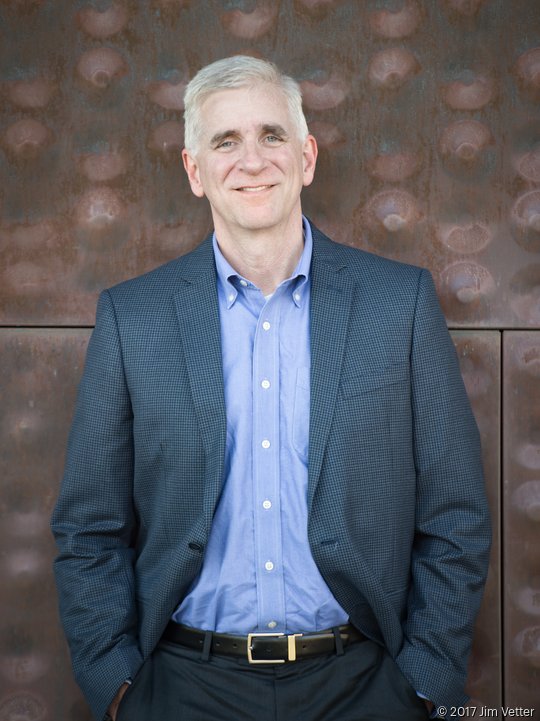
About half of the Angels want to be active in some of the companies they invest in, either by advising or mentorship. Some Angels prefer to make a passive investment into something other than stocks, real estate or some other asset class, Peters said.
Angels are taking big risks by investing in the very early stage of a company’s development in return for a significant piece of equity. The Angels only get a return if they are replaced by other investors or if the company is sold or goes public. Those types of exits can be many years in the making.
“We’d like to get more people interested in angel investing when they are in midcareer than at the end of their career,” Sanders said. “There is a long lead time from when you make the investment to when you get the money out.”
If an investment pays off at all, it can easily be five or 10 years down the line.
People are more willing to invest in areas they are familiar with, and for some investors from Davis and Woodland, that includes life sciences and technology from the University of California Davis, said John Selep, a member of the Sacramento Angels and the president of the AgTech Innovation Alliance, which operates AgStart and the Lab@AgStart, the largest shared wet lab space in the Central Valley.
Wet labs — equipped for testing and analysis of chemicals or biological matter — are necessary for life sciences, medical, pharmaceutical and agricultural research and experiments. Wet labs can be a major limiting factor for life-science companies because most startups don’t have the resources or the creditworthiness to build out a lab themselves.
The presence of the AgStart shared wet lab space has allowed more companies to test their product potential without having to make massive capital investments in equipment.
“The whole idea is to get moving with less. Lower the barriers to entry so that entrepreneurs don’t need to invest in materials, equipment and space,” Selep said.
Angels and others have made investments into companies that are using the lab, Selep said. “Growing the science startup ecosystem in our region is a 20-year process. We are 10 years into it.”
Growth over time
The local startup ecosystem has been years in the making. The Sacramento Angels started 22 years ago. Mark Haney, a co-founder of the Growth Factory, has been investing in local companies for a decade, after selling off a video security company. Haney launched the Growth Factory accelerator program in the fall of 2021 with a plan to invest in 100 local companies over four years.
The Growth Factory accelerator has already put 28 companies through its program, which includes mentoring, support, advice and money.
“The big contribution of the Growth Factory is raising awareness of startups, and it is expanding the pool for startup investors,” Selep said.
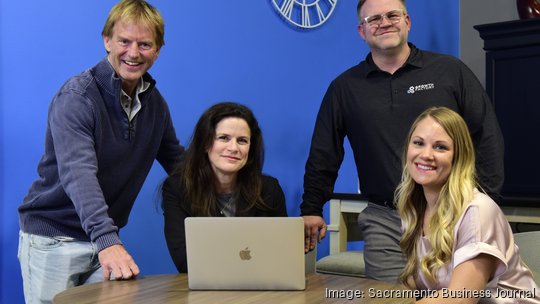
The local ecosystem is all interconnected. Some members of the Angels are advisers and investors in the Growth Factory fund, and both of those funds then potentially lead companies into Moneta Ventures, said Rick Spencer, managing partner of Growth Factory Ventures, the fund associated with the Growth Factory. The Growth Factory was founded by its managing director Monique Brown, Spencer and Haney.
The Growth Factory Ventures fund is ideal for people who are interested in alternative investments in startups, but who don’t necessarily want to do the work of an angel investor and go to meetings, attend events and do due diligence on companies, Spencer said.
“There are different ways to be connected,” he said. “We are building a platform and a community.”
People who don’t want to invest can participate by being mentors.
Growth Factory Ventures will invest more than $10 million into 100 local companies over four years. The fund is backed by 99 local investors, the maximum number of investors allowed by the Securities and Exchange Commission in a limited partnership. All investors must be accredited.
“All these programs bring visibility to startups that we already have,” said Jon Gregory, senior vice president and venture banking manager with Five Star Bank.
“The Sacramento Angels are a couple of decades into it, and they are well connected in the community. Mark Haney’s years of investment and his ‘backyard advantage’ efforts to engage local investors” have created real structure, Gregory said. “These are all strong portfolios with strong, skilled teams."
In addition to the investors, the local companies seeking investments are more sophisticated than they were in the past. That may partly be because of the experience they gain in the application processes for investment from the Angels, admission to the Growth Factory or for the local competitions like the Sacramento Kings Capitalize startup pitch contest, the UC Davis’ Big Bang! competition or Pitch Elk Grove. All of those applications run for pages online and require companies to submit extensive pitch decks showing their progress page after page.
Back in the late 1990s, Gregory pioneered regional startup pitch competitions with the Golden Capital Network in Sacramento and Chico.
“I would have loved to have had this kind of quality companies when I did Golden Capital Network,” Gregory said.
"The startup ecosystem is certainly more mature, and the companies are getting better, which is great," said Lokesh Sikaria, managing partner of Moneta, which was launched in 2014.


